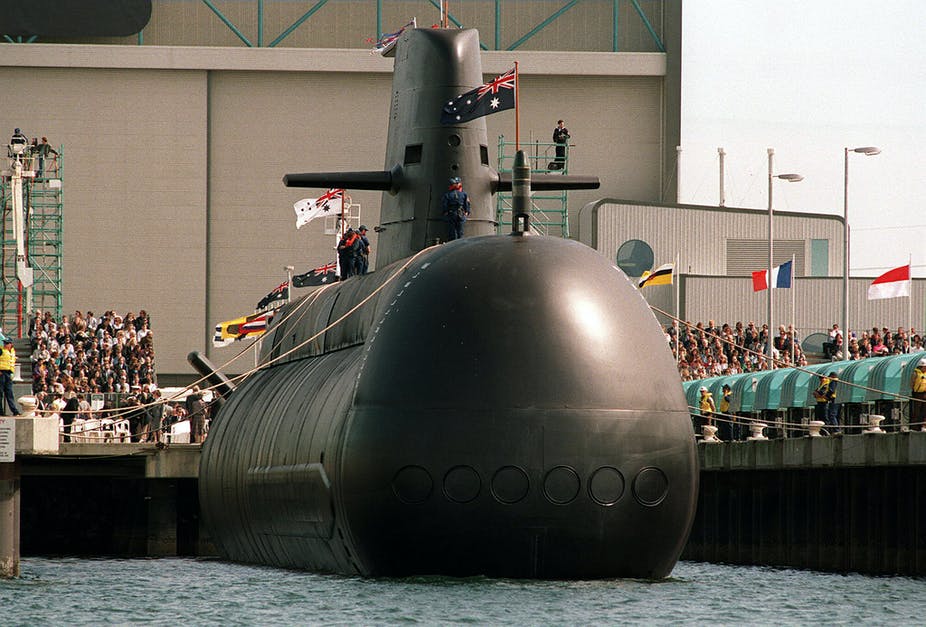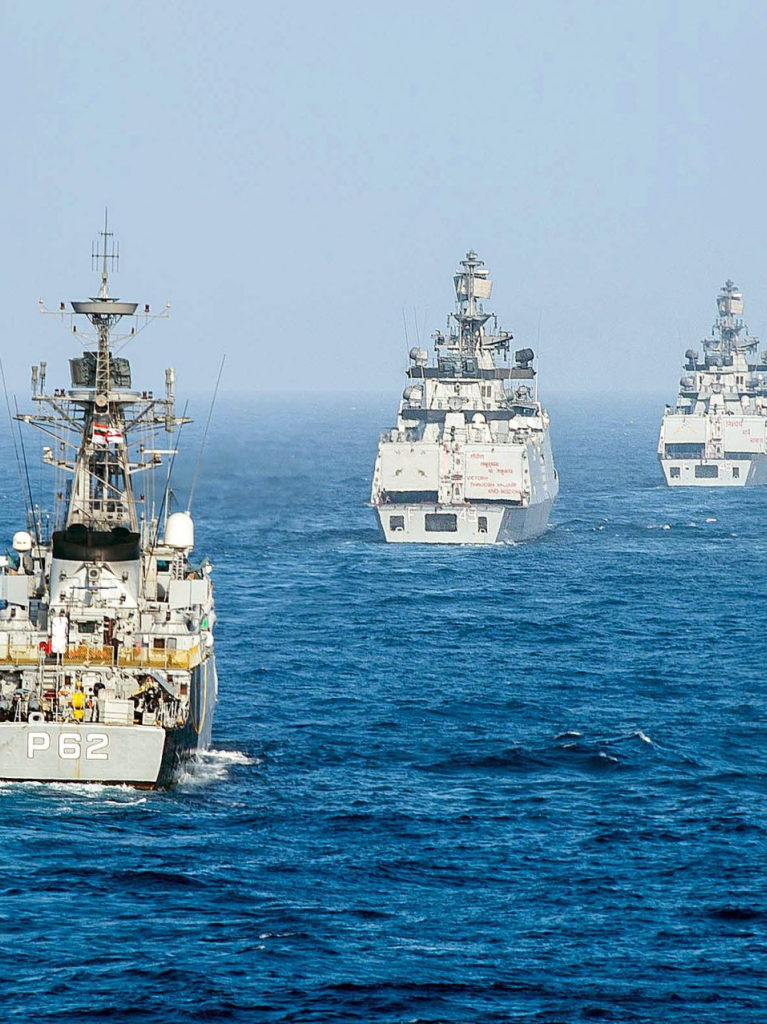The American quest for undermining the economic rise of China has resulted in various multilateral strategic agreements with different states having similar strategic intentions. The formulation of an anti-China alliance within the western bloc has recently introduced a US-sponsored trilateral framework agreement with Australia and United Kingdom (UK) in the fields of defence, security, and diplomacy is the fundamental objective for creating a cooperative trilateral agreement between Canberra, Washington, and London. Their national leaders have agreed to deepen cooperative ties in the Indo-Pacific region to strengthen the diplomatic abilities of their respective countries in security and defence affairs. The agreement sponsored by the US has allowed the Australian and British governments share their advanced skills, mainly linked to nuclear-powered submarines, parallel to formulating a trilateral closed network of sharing information and technological knowledge in the areas of Artificial Intelligence, cyberspace, underwater systems, quantum technologies and long-range strike capabilities. In response to American assurance for making this historical triangular cooperation work, Prime Minister Morrison of Australia agreed to intentions to take the partnership to the next level. British Prime Minister Johnson called it the addition of a new chapter in the three-state collaboration. In this way, the three nations’ governments showed their determination to expand their security collaboration to deter China. The American support to UK and Australia will formulate a way to increase deployment of advanced military hardware in Asia to meet American strategic interests, which currently targets China. It is believed internationally that this agreement will create a clear demarcation between the states standing with China and those standing against China.
Under the three-way interaction, the Australian government will be able to upgrade its naval capabilities with the support of the US and UK, because the Royal Australian Navy will be able to acquire nuclear-powered submarines. The nuclear support of Australia in maritime affairs will not only raise serious concerns among other regional states, it will undermine the security of the entire South Pacific region, which is already declared a Nuclear Weapon Free Zone (NWFZ). In 1985, the states of the South Pacific region signed a regional commitment for not going nuclear under the Treaty of Rarotonga (South Pacific Nuclear Weapon Free Zone Treaty). The three-way strategic collaboration will hamper the spirit of the multilateral NWFZ treaty because of the arrival of nuclear technology for naval empowerment of Australia. Apart from interfering with the vision of a nuclear-free South Pacific region, the security partnership between the three nations will cause a disturbance in the broader Asia Pacific region, wherein Chinese presence cannot simply be overlooked. The American supplied nuclear assistance to Australia will intensify the regional security environment of South Pacific. It will further develop a different probable scenario of nuclear activities in this region; in reaction, Australia’s neighbouring nations will start to polish their naval muscles for defensive purposes. The decision of two states for upholding the Australian ambition to empower its naval capabilities and place Canberra as an active partner of Washington’s anti-Beijing obsession is bound to raise China’s apprehension. In other words, it is more appropriate to say that the agreed framework of AUKUS will result in high tensions in the politics of the Pacific region.

The effects of AUKUS will also directly damage the scope of peace and stability in Australia’s home region. The nuclear cooperation between the three states is a clear depiction of America’s “containing China” ambitions and Washington’s aspiration of expanding its anti-China alliances in the Pacific region. This agreement has the potential to further US-China confrontation in the Pacific region, and its South Pacific directions will focus on Australia because the inception of nuclear capabilities in the Australian maritime affairs will have strategic and military implications for the entire region. The combination of great powers politics at the international level and the politics of Australia’s neighbouring countries at the regional level will witness an altered strategic environment in future. The detrimental impact of AUKUS on the great power politics parallel to the effects of nuclear cooperation under AUKUS on the neighbouring Australian states will create a new strategic competition in the Pacific region. Framing in another way, the cooperative trilateral strategic agreement between Washington, London, and Canberra has greater implications for the ongoing patterns of power politics at the international level. No doubt, the agreement is purely designed on cooperative lines, but it cannot be separated from the great power politics where the rise of Chinese is being perceived as a threat to the American global role. State officials from Washington have translated China’s economic rise as a potential threat to American international engagement. It is widely believed that the Biden administration is turning its eyes away from its traditional way of competing with China. The formulation of new anti-China initiatives has started representing an updated approach of Washington under the Biden administration, which appears to be determined to counter Beijing’s emerging role in international politics.

In reaction to the altering geopolitics of the South Pacific region, the international community must play an active role in stabilizing the scope of peace and stability in the region because creating a new military bloc will generate various new scenarios of an arms race in a nuclear-free region. Already the annual naval exercises (Malabar Exercises) between India, the US, and Japan and the creation of Quad (Quadrilateral Security Dialogue) between India, US, Japan and Australia have complicated the strategic balance of the Pacific region. The addition of AUKUS has augmented the situation due to America’s persistent anti-Chinese behaviour and its application in the international system generally, and the Pacific region particularly. Moreover, enhancing strategic collaboration under different bilateral and multilateral framework agreements is a challenge for the proponents of global nonproliferation efforts. Thus, the timely responses of the international community are needed to ensure the scope of peace and stability in the South Pacific region before it affects the politics of the South and Southeast regions.




